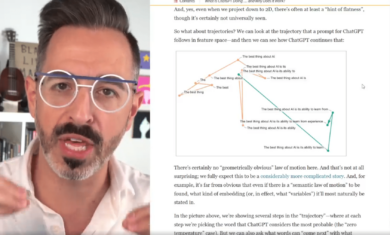 I’ve known for a while that our church had a variety of Facebook “groups”. I had set up a church-wide group, and there were at least a handful of youth-related groups. I figured maybe 8 or 10 total. Wow, was I wrong.
I’ve known for a while that our church had a variety of Facebook “groups”. I had set up a church-wide group, and there were at least a handful of youth-related groups. I figured maybe 8 or 10 total. Wow, was I wrong.
I’ve spent the last few days searching, and I’ve found 42 groups so far! It’s crazy. About half of them (22) are by/for students, a few Sunday School classes have their own, our music ministry has 7 groups, our Academy has 3, and then there are a few others. Even our MOPS ladies made their own group!
Now granted, a lot of them are tiny and/or dead (“Girls Retreat 07”), but many are quite vibrant. So how does this affect you?
First, find your church groups that are out there already. It’s taken me a while to track all of these down, and I’m sure there’s a few more out there. Run some group searches with variations of your church name (“mount bethel”, “mt bethel”, “mt. bethel”, “mtb”, etc). Once you’ve exhausted that, find church members on Facebook and see what groups they are already in.
Second, think about what other kinds of groups you can offer. A church member built a group for Live it Live (children’s worship program at our church), and our media folks have started posting weekly videos to the group. We also just added a group for our Encounter (contemporary) service, where they’ll be posting photos, videos, sermon notes, etc. Both of those could be of great value to our members, and great outreach to potential visitors.
Once you’ve done that, you can cross-promote between Facebook and your site. Link to Facebook groups from your site (“for more about our upcoming trip to Kenya, join our Facebook group“). Link back to your site (when appropriate) from your Facebook group.
As church webmasters, we need to start letting go of a little control. You used to want everyone to come to your site, and that’s still an admirable goal. However, job #1 is getting information to those that need it, which often doesn’t involve your site. Our blog posts go out to RSS subscribers, e-mail subscribers, Twitter users, FriendFeed users, etc. Many people get our bulletin via e-mail, which has lots of great info on it. We have a lot of members that subscribe to our Podcasts. Others obviously use Facebook. None of those people may visit our site, but that’s ok. As long as they get the information, they’ll still hopefully visit the church and connect with people there, which is the main goal of church-related digital communications.
How else can you use Facebook to facilitate activites at your church?



